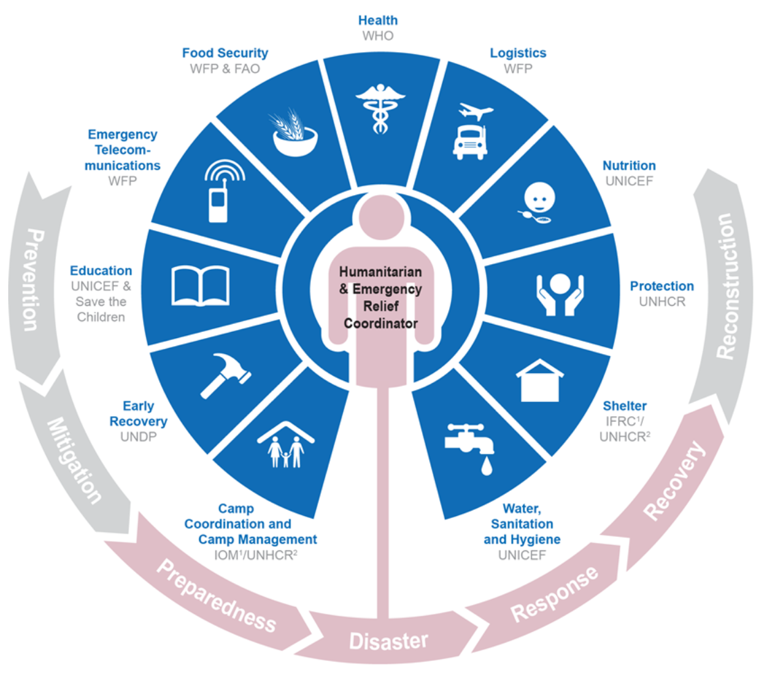When it comes to humanitarian crises the first response focuses on saving lives through the provision of shelter, water, food and medical support. As this phase of humanitarian response slowly makes way to early recovery other parts of the response system kick in, including Education in Emergencies.
Over the last decade, education interventions in emergency and forced displacement contexts have evolved as more youth have transitioned from primary to secondary education in emergency contexts and have been searching for opportunities to transition to tertiary education. Early pioneers in HEiE realized that they needed to leverage distance learning in order to reach learners in refugee camps and remote crisis settings. As e-learning took off and learning management systems became more sophisticated, universities in the Global North invested heavily in creating content that could be accessed globally. However, they had little to no experience in reaching learners in fragile contexts, a challenge that resulted not only from poor connectivity, but also from linguistic, cultural, content, pedagogical and credentialing differences between those who created the content and those who were invited to leverage it for improving their livelihoods and advancing their education in far-away crisis and forced displacement contexts.
When the pandemic transformed the entire world into an Education in Emergencies context, those with lived experience in crisis situations were at an advantage: they had already developed work-arounds, thought about ways in which digital pedagogies could be adapted to low resource environments, how synchronous and asynchronous learning could be optimally combined, and how on-site support could be leveraged to support learners who may never personally meet their professors, but would still want to feel very much “connected”.
The African Higher Education in Emergencies Network (AHEEN) was launched during the pandemic as an African solution to the African problem of forced displacement of youth and their lack of access to Higher Education. What sets the network apart is its approach and governance structure, bringing together actors from across society to problem-solve and contribute relevant expertise. University members in five African refugee-hosting implementation countries – Kenya, Somalia, South Sudan, Burundi and South Africa – offer academic programs that develop knowledge and skills that are relevant to displacement contexts; NGOs provide the critical link between universities and the “field” as they are nimble and can be reactive to sudden changes on the ground; RLOs (Refugee-led organisations) on the ground directly support learners in bespoke connected Learning hubs in refugee contexts and work closely with university faculty to ensure that learning outcomes are reached, trouble-shoot IT issues and feed back to faculty as to what works and what does not work on the ground; private sector actors support the transformation of university curricula and syllabi for digital delivery and faculty are trained to rethink their pedagogical approaches, rewrite their learning activities to be collaborative and fostering independent knowledge creation on the ground, through a dedicated series of webinars offered by the African Digital University Network (ADUN).
AHEEN recently graduated its first cohort of Diploma students who successfully obtained a Diploma in Community Interpreting from the University of Nairobi, the legal host of AHEEN, supported by its Center for Translation and Interpretation. Interpreting has traditionally been exercised solely in settings where the parties do not speak the same language and need to communicate in real time in the same physical setting with the help of a professional interpreter. The pandemic and advances in virtual meeting platforms have accelerated the use of what we call remote interpreting, where the parties and the interpreter no longer share the same physical location and require digital technology to facilitate multilingual communication. The technology is highly complex as the speaker and the interpreter speak at the same time, audio streams need to be separated and visual contact needs to be ensured. Graduates of the course benefitted immensely from having gone through the Diploma program virtually; their familiarity with the technology, supplemented with bespoke seminars delivered by experts on managing technology to work remotely, has not only provided them with an professional academic credential in the field, but also enabled them to qualify for recruitment by digital labour platforms specializing in multilingual communication through which they can now secure their livelihood.
While remote interpreting is used the world over, and strict standards have been developed by AIIC, the International Association of Conference Interpreters, to protect the health (hearing and mental) of interpreters working on-line, the case of humanitarian interpreting is particular as the high-end solutions that bank on top-flight technology and uninterrupted connectivity, can rarely be employed in emergency contexts. Students thus had learned to adjust to lower levels of connectivity and technology by adapting working conditions that would still protect their health while at the same time allow for multilingual communication in emergency contexts where an English-only approach would certainly fail to consider the needs of those who speak other languages and have no access to a trained interpreter. This would run counter to the principle of accountability to populations in need.
The technological solutions and the digital skills acquired by the refugee graduates through a HEiE program specifically designed for emergency contexts by a network of African actors has thereby contributed to an African solution that strengthens humanitarian accountability and meets the needs in an authentic way of those living in African displacement contexts.



















